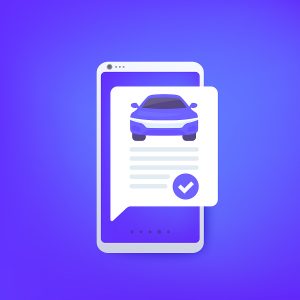How To Get A Vehicle History Report
Buyer Beware is often touted when buying a used vehicle and that is sage advise. Vehicles are not typically considered a good investment but they are necessary to get to and from all the places we go. When buying a used car, truck, SUV or motorcycle, a vehicle history report is a must to have before you hand over any cash. The reason is many vehicles have hidden problems that are often found out after the purchase and this can be very costly. A quick VIN lookup can give you all the vehicle history information you need to know before making an educated purchase. This report can tell you if there are any major accidents the vehicle was involved in, if the title is clean or salvages, if the odometer reading is correct, vehicle owner information and safety issues and recalls. The report is typically a few bucks but well worth it when considering the alternative of not knowing anything about a car and then finding out later that you need to put a lot of coin into fixing it. You will need to have the entire 17 digits of the vehicle identification number to run this report. If you do not know the VIN, you can also use the license plate number to locate the VIN.
What Is Included In A Vehicle History Report
- Complete History of the Vehicle
- Make Model and Manufacturer’s Specs
- Previous Owners
- Accident Reports
- Odometer Verification
- Clean Title Check
- Salvage or Junk Title Check
- Vehicle Registration Check
- Lemon Law Records
- Fair Market Value
- Price History and Depreciation Rate
- Recalls and Safety Issues
What Is A VIN Number?
The VIN Number of a vehicle, also known as the vehicle identification number, is a 17 digit alpha-numeric code that is unique to each vehicle manufactured. The VIN is like a fingerprint for a vehicle, no two are alike. This number also represents all the vehicle specs as it is set by the manufacturer when it rolls off the assembly line. This number is typically stamped or engraved in a few locations. You can find it on the driver’s side dashboard, the driver’s side door frame, the engine, the transmission, the catalytic converter and your registration and title cards. Each of the digits on the this identification number represents a value that can be translated such as the make and model of the automobile, the color, features, the year, etc. If you want to run a VIN number lookup on a used car that you’re interested in, the advertisement should include the VIN so that you can verify the vehicle information. If there is no VIN listed then request one as the seller must provide this upfront, before the purchase, it’s the law.
Used Car VIN Lookup
When purchasing a used car, you’ll want to verify a few things before handing over any money. This quick research can be performed on any smartphone or computer in a few minutes. The first thing you should consider is a used car VIN lookup. This is the same as running a vehicle history report. You’ll enter the 17 digit VIN into any number of the online web resources that can run a car fax or VIN report. Used car VIN lookup will allow you to find out if there are any major concerns with the vehicle, such as an accident or recall or title issue. Then you can cross reference this with the blue book value of the car, Kelly Blue Book is a great resource. Then compare the know issues with the vehicles against the different classifications of vehicle value which range from excellent to poor conditions. Then you can make an additional assessment yourself and see if this car is worth the listing price. These quick reference resources will also give you the ability to bargain with the seller to try and get the price down. These are great tools that can be accessed on the fly with your smartphone or laptop to help you have all the tools you need when buying a used car.
Vehicle Recall Check
If you want to know if a vehicle has a recall the best and most up to date resource is the NHTSA website. There you can quickly run a vehicle recall check with any 17 digit vehicle identification number. This resource will allow you to see if there is anything you should be concerned about and references the details of the recall and how dangerous it might be. You’ll also be able to find out known safety issues, that are not recalls, that certain makes and models of vehicles have. Perhaps a certain vehicle has a higher roll-over potential or maybe a vehicle has poor crash ratings that you might be concerned about if you drive your kids or family around in the car. This resource as well as running a vehicle history report can offer you a lot of insights to your vehicle or one that you are interested in buying. These are resources you cannot afford to ignore, it could save your life.

With inflation on all consumer goods on the rise and supply chains creating fluctuations in prices, using all the car buying tools available can save you a lot of coin and keep you safe.